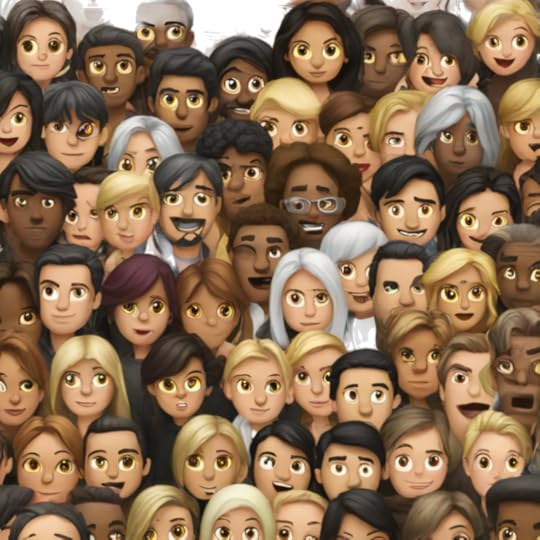It's all about character

People created climate change, and people will solve it. This story is intimately, and truly, a human one. Not a story of polar bears, but of people.
To change everything, will take everyone. But, is everyone welcome in the climate story right now?
Thanks for reading Solitaire Townsend’s Climate Storytelling! Subscribe for free to receive new posts and support my work.
The researcher Pat Dade developed a wonderful psychographic (rather than demographic) for sustainability audiences:
Settlers – small world thinkers whose reality is friends, colleagues, neighbours. Their community is geography. Focused on safety, saving and family. Automatically suspicious of change and strangers. They believe the past was better than the present.
Pioneers – big world thinkers whose reality is global. Their community is anyone with similar values/interests. Focused on activism, ethics and change. Automatically suspicious of mainstream corporates and pop culture. They believe the future could be better than the present.
Prospectors – live in a world of one – themselves (technically called ‘outer-directed’ in psychology). Driven to look good in the eyes of others. Focused on status, fun and sentiment. Automatically suspicious of anything alternative, undesirable or involving sacrifice. For them, past and future are irrelevant, they live in the now. And there are many more of them than the other two groups.
Most climate messaging is developed by the pioneer type, for pioneers. If any effort is made to reach settlers or prospectors, it’s to try and convert them into pioneers.
Climate action suffers from extreme gatekeeping by people completely oblivious that’s what they are doing. No climate communicator wants to exclude people, quite the opposite, we are all desperate to reach everyone. But, far too often campaigns are brutally strict about what matters:
Only vocal political activism matters, personal behaviour change is irrelevant.
Only global problems matter, worries about your own street or family betrays the people really suffering.
Only mass transformational system change matters, incremental change is worse than useless.
Our shallow cultural interests in celebrities, status and reality TV are part of the problem.
If it’s hurting, it’s working. Sacrifice is the only way to save us.
We can’t change until we accept our own guilt and grief.
Am I being OTT? Perhaps, but take a look at many climate campaigns, memes and messages and you won’t have to scratch far below the surface to reach these unconscious rules.
Pioneers want to save the world in the way that fulfils their own interests, beliefs and drivers, and struggle to accept the validity of other values.
I get it. But if changing everything is going to take everyone, we have to let everyone in, on their own terms:
Non-political moms – moms who care about their kids, and the Kardashians. Who buy 80% of the stuff and swing vote (making them the top advertising target for brands and politicians). Who swipe past or flick channels on climate change content because it’s depressing, but worry about the world. Can we give them virtue signals? High status sustainability? Fun solutions?
Sports fans – folks who really know what winning means. Who understand the complexity of the 30-yard line rule, but think climate change is too complicated. If climate change is one long depressing loss, that’s not a game they will play. But grit and glory? Pushing beyond what’s possible? Bringing every solution into play and giving it all you’ve got? Sports mindsets might just be what climate action needs.
Fandoms – 130,000 in San Diego, 500,000 in Tokyo - ‘Comic-cons’ draw huge crowds to sci-fi, fantasy and anime events. Online, the ‘fandoms’ for science fiction run into hundreds of millions. Science positive, imaginative and future focused, these folks are ripe for solutions action. From the mobile phones to helicopters, so much technology was imagined first in sci-fi. Every 14-year-old future engineer is a sci-fi geek - literally the folks who will design our future. How are we inspiring them?
Vloggers – right now, your kids are watching videos made by other kids playing Roblox. Every day on YouTube, TikTok and Instagram, creators talk to, joke with, inspire, challenge and connect with billions. Find a way to weave in climate solutions in an authentic, entertaining voice (rather than a dull PSA) and we’ll activate a generation.
Retirees – Bill McKibben calls it the ‘third act’ – the rich, old, educated, influential and active seniors who miss the purpose and politics of the office. Boomers are climate enemy No1 in so much climate discourse. If the hardest part of getting old is losing relevance, what better way to show the annoying youth how wrong they are, than by solving climate change?
These are only a few neglected audiences who need a different approach than the current climate tropes. Imagine what we could achieve if we met them where they are, rather than trying to turn them into us.
Thanks for reading Solitaire Townsend’s Climate Storytelling! Subscribe for free to receive new posts and support my work.



